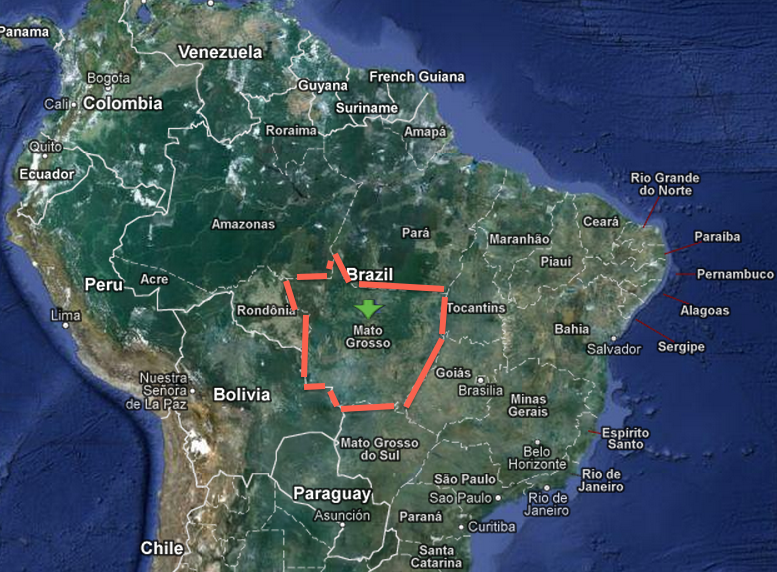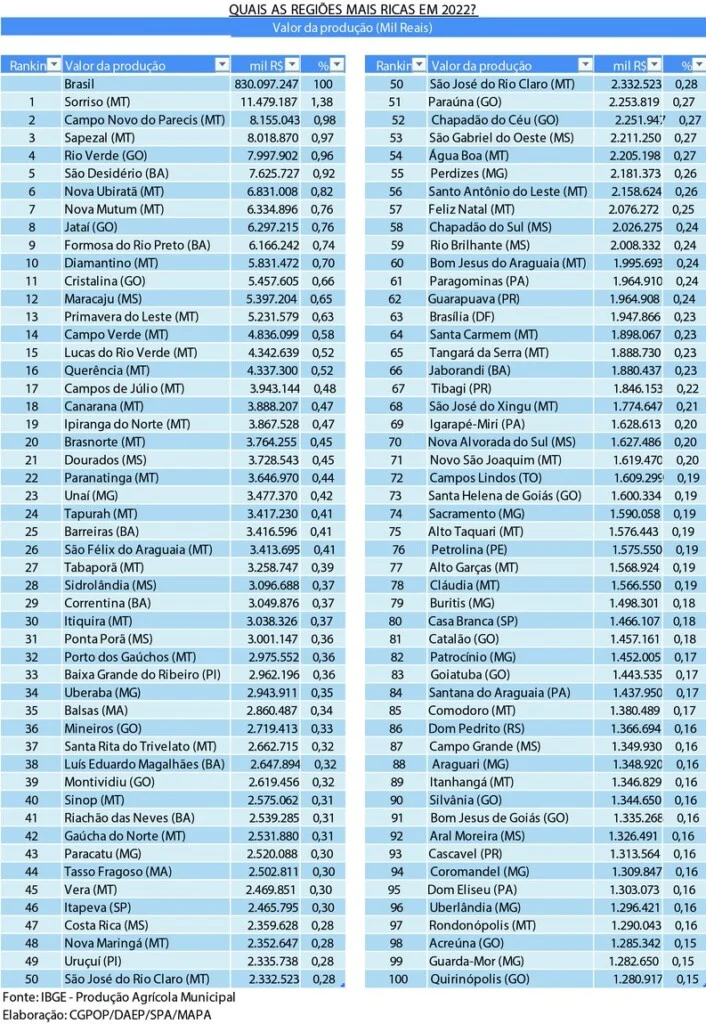The Ministry of Agriculture in Brazil just released a 2022 ranking of the top 100 cities in agribusiness.
This list uses data from the IBGE’s annual survey. It considers factors like crop yield, production area, and total value.
Five cities led the pack among the 5,563 assessed. Notably, Sorriso, Campo Novo do Parecis, and Sapezal in Mato Grosso stand out.
So do Rio Verde in Goiás and São Desidério in Bahia also deserve attention. These cities excel in producing cotton, corn, and soybeans.
Records were broken into two categories: production and value. Total output hit 263.8 million tons.
This spread over an area of 90.4 million hectares. Meanwhile, the crop value soared to R$830.09 ($171) billion.

These top cities cover 30.156 million hectares. This makes up 34.2% of the nation’s total farmland.
Additionally, they contribute R$ 288.13 billion. This represents 34.71% of the country’s total crop value.
The list mainly features cities from the Central-West region. Specifically, 41 are from Mato Grosso.
Then, 14 are from Goiás, and 11 from Mato Grosso do Sul. One, the Federal District, even includes the capital, Brasília.
Moreover, 11 cities from Minas Gerais appear on the list. Also, Bahia contributes seven cities.
In Paraná, three cities stand out: Guarapuava, Tibagi, and Cascavel. Finally, São Paulo and other states also mark their presence.
Background
The release of this list offers critical insights into Brazil’s agribusiness sector. First, the data highlights the critical role of specific regions.
Mato Grosso and Goiás, for example, emerged as powerhouses in agriculture. This supports targeted investment and policy-making for these areas.

Second, the record-breaking numbers indicate a booming agricultural sector. Brazil continues to solidify its position as a global food provider.
Still, this raises questions about sustainability and environmental impact, given the extensive land use.
Third, the list illuminates regional disparities. Despite its size, the South and Northeast contribute fewer cities to the top 100.
This suggests that resources and opportunities aren’t uniformly distributed across Brazil.
Fourth, with a focus on cotton, corn, and soybeans, Brazil’s crop portfolio remains somewhat limited.
Diversification could offer resilience against market fluctuations and climate change effects.

